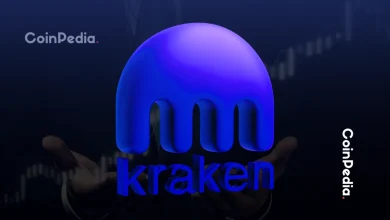
Ljubljana, the capital of Slovenia, has been crowned the world’s most crypto-friendly city in 2025, a title reflecting the nation’s rapid regulatory and economic advancement in the crypto space. This achievement follows Slovenia’s leading position in the Multipolitan crypto wealth concentration index, thanks to the government’s continuous efforts to refine and enhance its crypto regulation framework.
In 2025, Slovenia updated its regulatory rulebook with tax reforms, AML laws, travel rule requirements, and broader crypto regulations, creating a well-structured and secure environment for digital assets.
Table of contents
- Key Crypto Regulation Developments in Slovenia – 2025
- What Do Slovenia’s Federal Agencies Say About Crypto?
- Slovenia Crypto Taxation Framework – 2025 vs 2026
- Corporate Crypto Taxation in Slovenia (2025–2026)
- Slovenia’s Crypto Adoption Rate in 2025
- Crypto License in Slovenia
- Crypto Mining in Slovenia 2025
- Conclusion
- FAQs
Key Crypto Regulation Developments in Slovenia – 2025
June 30, 2025 – Second Working Meeting at the Slovenian Ministry of Finance
Members of Bitcoin Slovenia and Blockchain Alliance Europe, along with other groups, participated in the second working meeting at the Slovenian Ministry of Finance.
- It aimed to classify crypto assets into two classes while providing a detailed explanation of bitcoin as an investment and payment tool, and a store of value.
April 17, 2025 – Draft Crypto Tax Law Announced
The Ministry of Finance launched a public consultation on a proposed 25% flat tax on capital gains from crypto-assets, applicable when converting to fiat or spending crypto.
- Feedback deadline: May 5, 2025
- Implementation date: January 1, 2026
April 2, 2025 – ZIUIPSK Act Comes Into Force
This act mandates stricter AML and fund transfer standards for crypto service providers.
March 6, 2025 – ZIUIPSK & AML Amendments Adopted
The National Assembly approved the ZIUIPSK Act and amendments to the Money Laundering and Terrorist Financing Act (ZPPDFT-2B) to enhance transparency and prevent illicit financial activity.
January 2025 – MiCA Regulation Becomes Applicable
The Markets in Crypto-Assets (MiCA) regulation is now fully implemented in Slovenia. Crypto service providers must meet new licensing, transparency, and consumer protection rules.
Existing providers have until July 2026 to comply, unless an earlier deadline is set by Member States.
What Do Slovenia’s Federal Agencies Say About Crypto?
- Bank of Slovenia
Acts as the primary regulator for financial services dealing with crypto-assets and oversees e-money token activities under MiCA. - Financial Administration of the Republic of Slovenia (FURS)
Manages tax compliance and enforcement for crypto.
It is currently working on redefining the fair market value starting in 2026 and considers crypto-related operations under the “permanent business activity” clause. - Office for Money Laundering Prevention
Oversees VASPs registration and enforces AML compliance to prevent fraud and cyber scams. - National Assembly of the Republic of Slovenia
Responsible for enacting all crypto-related laws. - Securities Market Agency
Handles the classification of crypto assets as securities.
Slovenia Crypto Taxation Framework – 2025 vs 2026
| Taxable Event | 2025 | 2026 (Proposed) |
| Holding crypto | Not taxed | Not taxed |
| Selling crypto for fiat | Not taxed | 25% tax on profit |
| Spendingcrypto on goods/services | Not taxed | 25% tax on profit |
| Crypto-to-crypto swaps | Not taxed | Not taxed |
| Transfers between own wallets | Not taxed | Not taxed |
| Mining/Staking income | Taxedas income | Taxed as income |
Additional Notes:
- Profits = Sale Price – Purchase Price – Transaction Fees
- Losses can be used to offset future gains
- Annual filing deadline: March 31
- Tax payment deadline: Within 15 days of filing
- Assets will get a fair market value reset on January 1, 2026
- Only gains realized after January 1, 2026, are taxable
Corporate Crypto Taxation in Slovenia (2025–2026)
| Aspect | Details |
| Tax Status | Regular business/corporate income |
| Tax Base | All crypto-related income (trading, mining, staking) |
| Tax Rate | Standard corporate income tax rate |
| Reporting | Must maintain transaction records |
| Filing | Annual corporate tax return required |
| Crypto-to-crypto swaps | Included in business income |
| Mining/Staking | Taxed as business income |
Slovenia’s Crypto Adoption Rate in 2025
Slovenia has emerged as a major financial hub for crypto in Europe, surpassing several technological centers globally. Its crypto adoption rate reflects a rapidly growing and tech-savvy population.
| Metric | Value |
| Crypto user penetration rate | 4.66% |
| Digital asset user penetration | 5.01% |
| Estimated number of crypto users | ~98,000 |
| Adult crypto ownership rate (2024) | 15% |
| Crypto Friendliness | #1 globally |
| Estimated market revenue (2025) | US$2.8 million |
| Revenue per user (2025) | US$28.7 |
Crypto License in Slovenia
There is no specific crypto license in Slovenia, unlike other countries. However, companies providing crypto services must register with the Office of the Republic of Slovenia for the Prevention of Money Laundering and other regulatory bodies.
Crypto Mining in Slovenia 2025
Crypto mining in Slovenia remains legal despite not having specific laws regarding it. It is even subject to personal and corporate income tax when considered as a business. But if mining is not considered the individual’s permanent business activity, then it is taxed as other income. This thin line between what is a hobby and what is business creates uncertainty for crypto mining taxpayers.
Conclusion
With a positive regulatory environment and supportive government agencies, Slovenia has positioned itself as a global leader in crypto regulation. The country is home to a growing number of cryptocurrency startups and is one of the wealthiest crypto countries, with an average of $240,000 per investor.
As platforms like Coinbase, Bitpanda, MetaMarket, Trust Wallet, and others gain traction among Slovenian users, the government continues to focus on tightening crypto laws—ensuring transparency, security, and proper taxation moving forward. Slovenia’s crypto regulation model could soon serve as a blueprint for other nations navigating the evolving digital asset space.
Never Miss a Beat in the Crypto World!
Stay ahead with breaking news, expert analysis, and real-time updates on the latest trends in Bitcoin, altcoins, DeFi, NFTs, and more.
FAQs
Yes, Slovenia is widely considered a crypto-friendly country, especially in 2025. It has been proactive in establishing a clear regulatory framework, including comprehensive tax reforms, anti-money laundering (AML) laws, and the full implementation of the EU’s Markets in Crypto-Assets (MiCA) regulation. This robust and supportive environment has positioned Ljubljana as the world’s most crypto-friendly city and made Slovenia a leading nation in crypto wealth concentration.
Slovenia has an estimated 98,000 crypto users, with a 4.66% crypto user penetration rate and an adult crypto ownership rate of 15% in 2024, reflecting its growing tech-savvy population.
Currently, in 2025, capital gains from selling or spending crypto are generally not taxed for individuals unless it’s a professional business activity. However, from January 1, 2026, a proposed 25% flat tax on capital gains will apply when converting crypto to fiat or spending it. Mining and staking income are taxed as regular income. Corporate crypto activities are subject to the standard 19% corporate income tax.
Trust with CoinPedia:
CoinPedia has been delivering accurate and timely cryptocurrency and blockchain updates since 2017. All content is created by our expert panel of analysts and journalists, following strict Editorial Guidelines based on E-E-A-T (Experience, Expertise, Authoritativeness, Trustworthiness). Every article is fact-checked against reputable sources to ensure accuracy, transparency, and reliability. Our review policy guarantees unbiased evaluations when recommending exchanges, platforms, or tools. We strive to provide timely updates about everything crypto & blockchain, right from startups to industry majors.
Investment Disclaimer:
All opinions and insights shared represent the author's own views on current market conditions. Please do your own research before making investment decisions. Neither the writer nor the publication assumes responsibility for your financial choices.
Sponsored and Advertisements:
Sponsored content and affiliate links may appear on our site. Advertisements are marked clearly, and our editorial content remains entirely independent from our ad partners.







